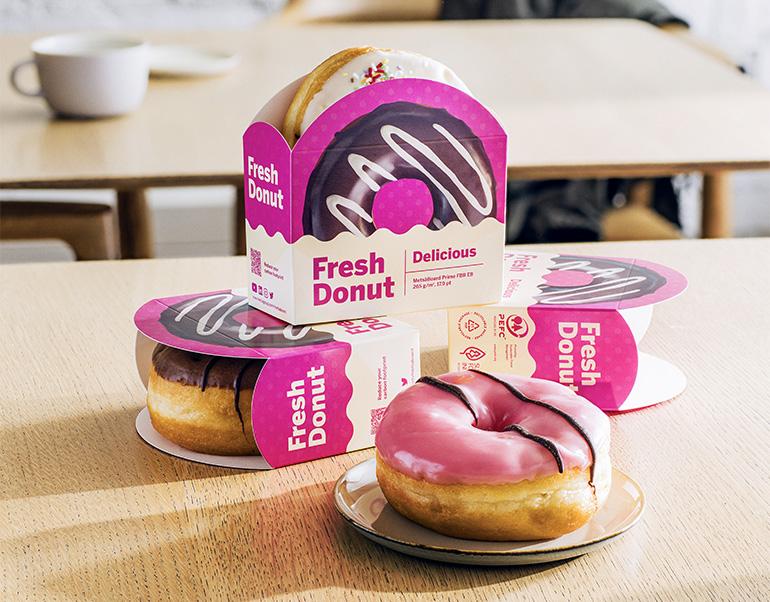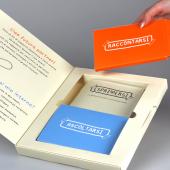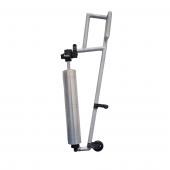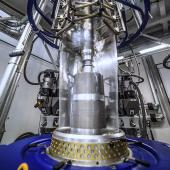A circular solution for packaging doughnuts
Accompanying producers in the food industry in the transition to sustainable and compostable packaging is the objective of Metsä Board, which has developed safe and high-performance cardboard solutions that are able to protect foods from deterioration and damage during storage, transport and shelf placement.

Designed in detail for the packaging of foods with a high fat content such as doughnuts, MetsäBoard’s Prime FBB EB is a light cardboard coated with an ecological barrier that offers medium protection against oils and humidity. Performing on a par with plastic, but easier to recycle, it’s able to protect the food also from a hygienic point of view, maintaining its organoleptic integrity.
The reduction of plastic is a key issue for food brands under pressure from regulatory authorities, investors and consumers demanding more ecological packaging.
MetsäBoard Prime FBB EB is a sustainable alternative to plastic which guarantees the same performance:
«Our task is to demonstrate the effectiveness of cardboard in terms of safety and a barrier-effect, so that brands can embrace this transition with peace of mind. », affirmed Hélène Lehtinen, Director of Barrier Development of Metsä Board.
In-depth tests verify effectiveness in real applications
When the suitability of a new material is evaluated, it is essential to carry out specific tests to verify that the packaging perfectly fulfils the function for which it was designed.
Metsä Board works with a pool of experts in close collaboration with the customer to fully understand the properties of the product, the final application and the process conditions.
The Äänekoski Excellence Centre becomes strategic for this purpose, in which the production and storage conditions are replicated in climatic chambers so as to be able to predict the real behaviour of the packaging in contact with the food.
«In the specific case of packaging doughnuts, resistance to fats is obviously a sine qua non condition, but it is equally important to know if the product is packed warm or cold because, in the first case, condensation may form. Storage conditions are another determining factor for ensuring that the cardboard is treated in such a way as to resist also in environments characterized by humidity » Hélène explains.
The performance of these tests on behalf of customers further accelerates the development process of packages and allows Metsä Board to suggest the best solution for each single application, quantifying exactly the quantity of plastic saved.


















